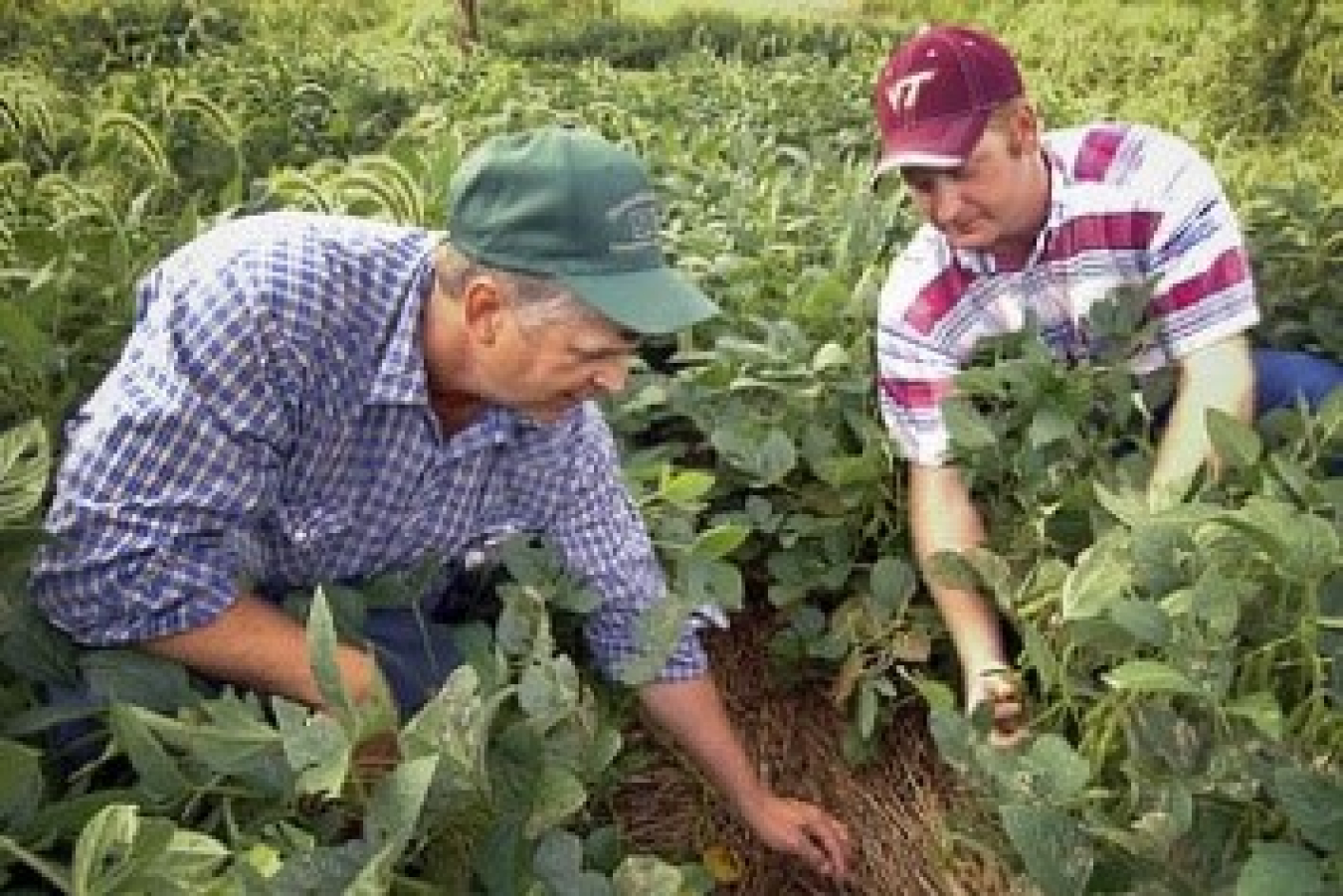
Photo courtesy of the U.S. Department of Agriculture.
The job of agricultural extension specialist is a mid-level position in bioenergy, in the agriculture, life, and physical sciences career sub-sector. Job seekers with agriculture, life, and physical sciences backgrounds or a career in the sciences could consider this type of mid-level bioenergy job.
Agricultural extension specialists use their knowledge of biology, genetics, horticulture, natural resources, and crop science to help farmers select the right crops and cropping management systems. People in these positions may have careers in bioenergy agriculture.
Agricultural Extension Specialist
| Alternate Title(s) | Agronomist; Crop Advisor; Agricultural Extension Agent |
| Education & Training Level Description | Master’s degree in Agronomy, Natural Resources, or a related discipline is preferred. |
| Experience | 3–7 years |
| Job Skills |
|
| Job Profile | The United States has the capacity to sustainably produce one billion tons of biomass annually without interfering with the production of food, feed, and fiber. There are many opportunities to leverage non-food agricultural resources like crop residues (e.g. stalks and stems) and energy crops (e.g. switchgrass and miscanthus) on existing lands to meet this capacity. Expertise in agricultural systems is vital to realizing the potential of these resources. For example, crops require specific tillage regimes, fertilization, weed control, pest control, irrigation, planting, and harvesting techniques that are increasingly refined and improved to ensure higher yields and crop health. The selection of particular varieties that match soil and climate conditions will also be an important factor in ensuring a successful harvest. Agricultural extension agencies bring this vital, practical information to agricultural producers, small businesses, consumers, and the general public. They have traditionally supported research scientists in communicating correct and unbiased research to farmers so that they can make the most effective management choices on cutting edge research and innovation. Extension agents can also introduce locally appropriate technologies and management techniques that enable farmers to select crop varieties and practices that are best suited to their geographic area. At the middle levels, employees work as extension specialists and, together with research scientists, develop communication tools that apply the knowledge of biology, genetics, horticulture, natural resources, and crop science to help farmers select low-input, high-yielding energy crop varieties and identify effective and sustainable management strategies. A master’s degree in agricultural sciences, agronomy, soil science, soil chemistry, agricultural economics, and/or related disciplines is preferred. Significant experience in the field and professional licensure may substitute for additional education. Experience in scientific computing, modeling, and simulation related to energy systems is preferred. Education is a large part of agricultural extension positions, and therefore, careers in this track will require significant interpersonal skills. |
More Mid-Level Agriculture, Life, and Physical Sciences Jobs in Bioenergy
Related Bioenergy Career Resources
Bioenergy Career Exploration Wheel
